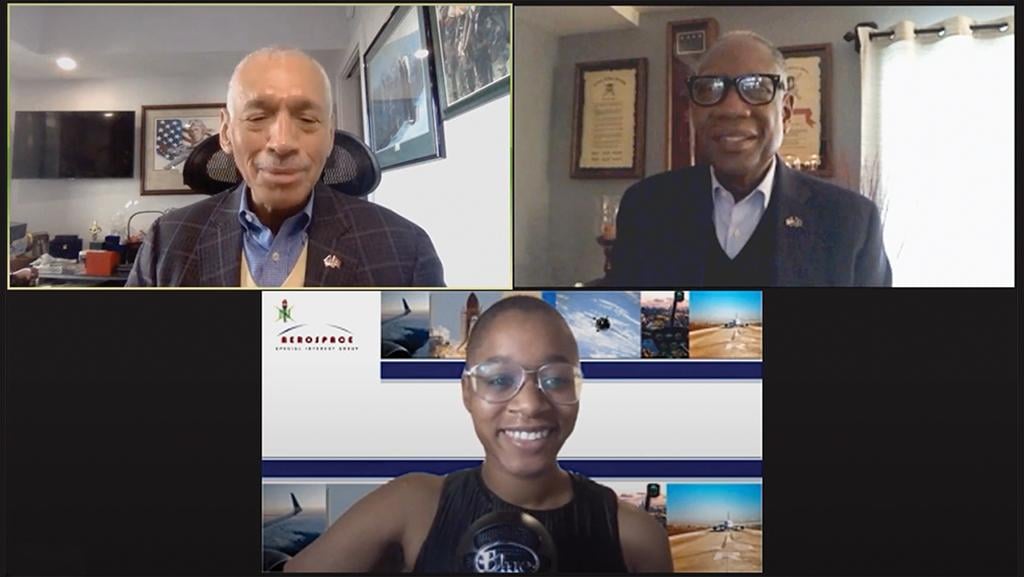
Charles Bolden, a four-time shuttle astronaut, retired U.S. Marine Corps major general and former NASA administrator, knows a thing or two about racism.
Born in 1946 and raised in segregated South Carolina, Bolden, an African American, set his sights on the U.S. Naval Academy, despite legislators from his district withholding their recommendations.
“My representative and my two U.S. senators made it very clear that they were not going to appoint a Black to the Naval Academy—or any academy—under any circumstances,” says Bolden. “They were happy with seeing the people who were in training to be leaders of the nation remain all white.”
Bolden finally made it to the Naval Academy—and hated it. “I thought it was tough. I thought it was unfair. I faced discrimination,” Bolden recalls. “I cried to my mom and dad every weekend during my [freshman] year, saying I wanted to come home. My dad told me to just hang in there one more day, one more week.
“The thing that made me decide I was going to stay was two of my company-mates coming in and telling me I wasn’t going to make it through the Naval Academy,” Bolden continues. “I asked them what made them think I wasn’t going to get through, and they said, ‘We’re not going to let you get through.’ When they walked out of my room, I changed my mind. I said, ‘I may not like this place, but I am not leaving. They are not going to drag me out of here.’”
Bolden became a naval aviator, combat pilot, test pilot, NASA astronaut and then returned to the Marine Corps as a commander. He rejoined NASA in 2009, tapped by the administration of then-President Barack Obama to serve as administrator. Along the way, he came to understand that the fight against discrimination needs to be focused on removing blindfolds from those in power, many of whom do not see its subtleties.
Bolden tells a story about Robert Lightfoot, a longtime colleague and NASA leader who is now a vice president at Lockheed Martin. Lightfoot was mulling candidates for a job promotion. A woman—newly a mother—was a strong contender, but Lightfoot questioned her ability to handle the travel requirements of the position.
In no uncertain terms, Lightfoot was rebuked, informed by a woman on the selection panel that it was his job to choose the best candidate, not make decisions about family management matters.
“He was taken aback because he had never looked at it that way. He was being the typical white male, dominant person in the organization who is going to tell everybody else what is the right thing to do. Experiences like that caused him to become an incredible leader,” says Bolden.
“Robert Lightfoot is a son of the South, born and raised in Alabama,” notes Bolden. “His first job out of college was on a test stand at the Stennis Space Center in Bay St. Louis, Mississippi. Robert taught me more about diversity than anybody else I’ve ever met because he shared with me his experiences of being in that 80% that just didn’t get it and was brought to understand it by sitting and listening to people.”
Bolden’s comments were part of a webcast discussion about diversity hosted by the American Institute of Aeronautics and Astronautics (AIAA) on Jan. 18, Martin Luther King, Jr. Day. Joining Bolden was another military leader, Air Force Gen. (ret.) Lester Lyles.
Lyles’ current projects include advising Air Force Chief of Staff Gen. Charles Brown—the first African American to lead any branch of the U.S. Armed Forces—on the Air Force’s Diversity and Inclusion Task Force. Among the group’s findings: There is racial disparity in the military justice system for the U.S. Air Force.
“There is disparity in the way minorities have been treated in the military justice system compared to non-minorities,” says Lyles. “They’re trying to illuminate the problem and then get to the root cause . . . so we can get rid of it.
“There are lots of great things about the military, but military leaders today recognize they also have a problem,” he adds. “They are trying to make sure they are looking at the problems seriously and getting rid of them to better serve our country.”
The webcast is available on the AIAA.org website.





Comments